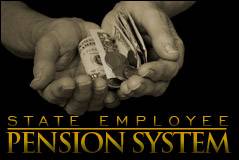Media
Pension Reform Doesn’t Bring Higher Costs
 The Allentown Morning Call features an article on pension reform in which a representative of the Public Employee Retirement Commission claims that Gov. Corbett’s proposal to put new employees into a 401(k) type plan adds additional costs and forces the state to pay off its more than $40 billion unfunded liability in 15 years.
The Allentown Morning Call features an article on pension reform in which a representative of the Public Employee Retirement Commission claims that Gov. Corbett’s proposal to put new employees into a 401(k) type plan adds additional costs and forces the state to pay off its more than $40 billion unfunded liability in 15 years.
But this payment is not mandated, and shifting to a 401(k) does not create higher costs. Thakfully, the article quickly refutes the claim:
Don Fuerst, a senior pension fellow at the American Academy of Actuaries in Washington, D.C., said closing a pension plan to new hires would not endanger it.
Rating agencies like Moody’s and Standard & Poor’s have no power to force the state to speed up payments and there are no actuary rules that would require it either, he said. The Government Accounting Standards Board is dropping guidelines in 2014 and 2015 that could have caused a small increase in liabilities under Corbett’s plan but would not have sped up the payments.
Changing plan design would not increase the the unfunded liability the state has already accrued—currently more than $40 billion between the public school employee and state worker pension systems, based on current assumptions.
It’s true that a second aspect of Gov. Corbett’s proposal—lowering the cap on contributions into the plans—will add long-term costs. His proposal also includes changing future benefits for current employees, which would provide long-term plan savings vs. current projections.
But moving new hires to a new plan does not create additional “transition costs”—an oft-repeated myth refuted in a paper by Robert Costrell of the University of Arkansas. More importantly, 401(k) plans provide retirement costs that are affordable for taxpayers, predictable for government officials, and not subject to the political manipulation that has plagued traditional pensions.